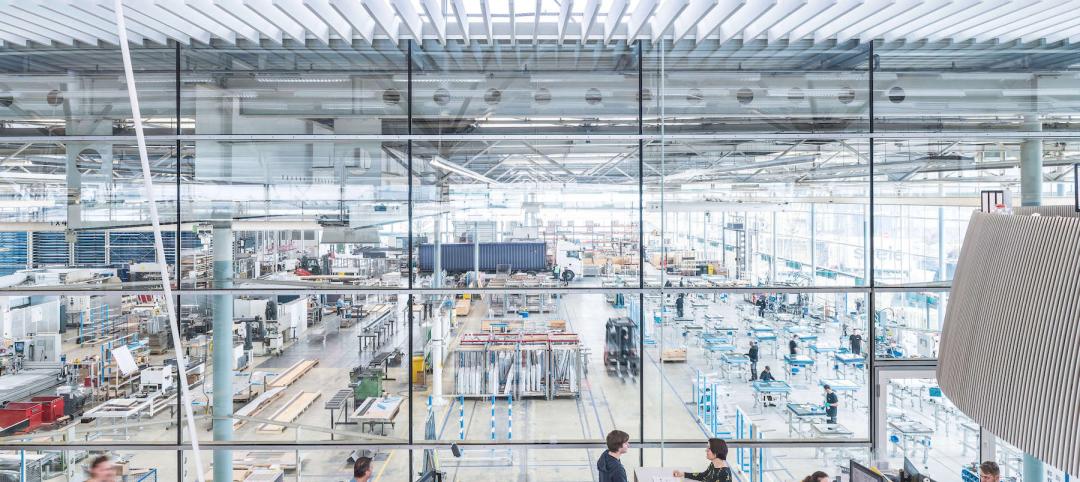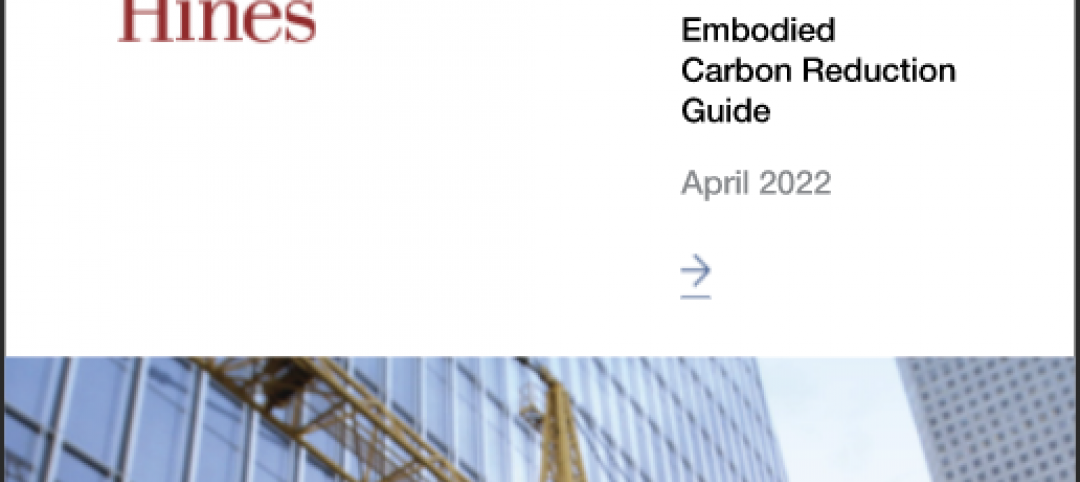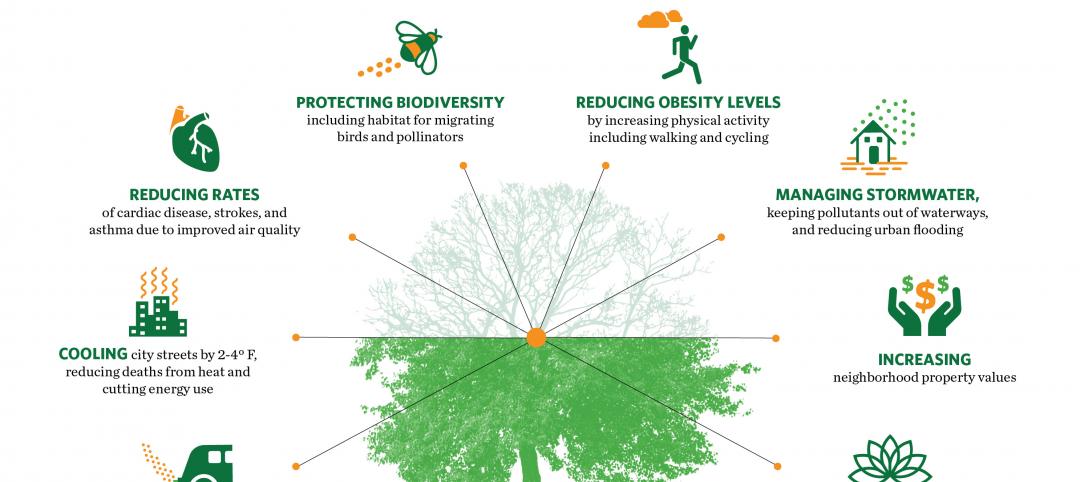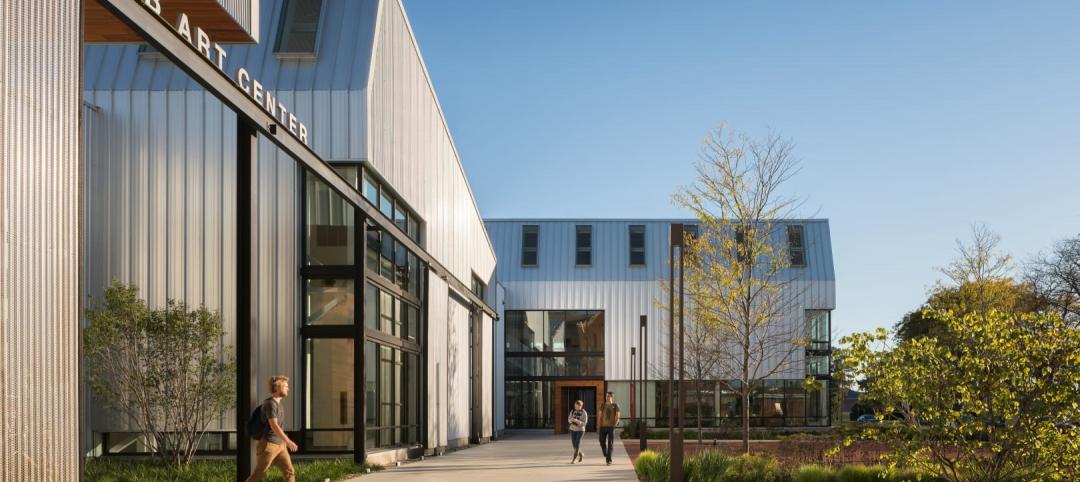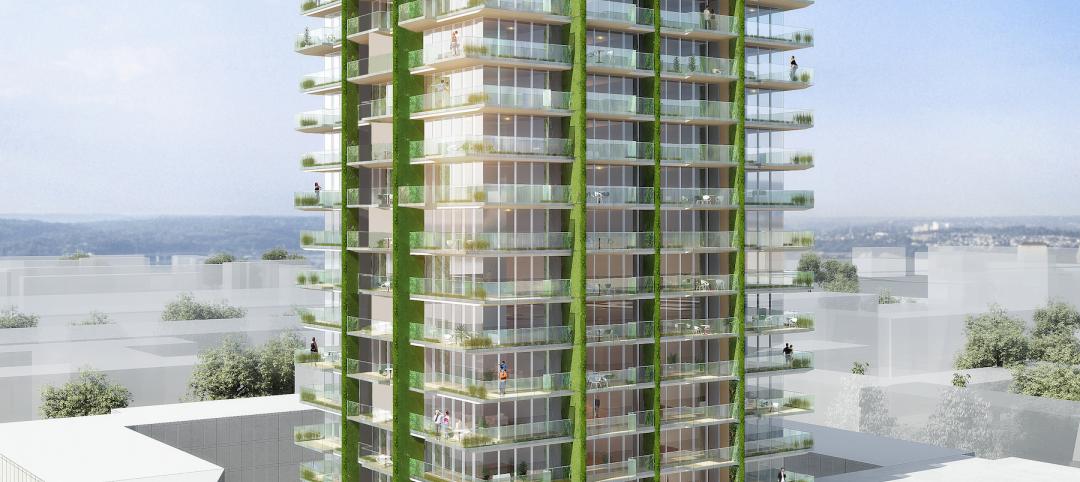Global management consulting firm McKinsey recently launched the Net Zero Built Environment Council, a cross-sector coalition of industry stakeholders aiming to decarbonize the built world.
The council’s chief goal is to collaboratively create new pathways to cut greenhouse gas emissions from buildings.
The Council will support stakeholders to create and commercialize new green innovations, create global sustainability metrics and research, and promote cost-effective pathways to “decarbonizing everything from construction methods to materials,” according to McKinsey.
The council will work to align siloed supply chains, construction projects and markets, and help industry players tap into an estimated $800 billion to $1.9 trillion in potential green markets. The launch of the Net Zero Built Environment Council comes alongside the release of a new McKinsey report that identifies a lack of collaboration within the built environment ecosystem as a key obstacle to decarbonization.

McKinsey’s research found that 76% of emissions from an average building are caused by operations, demonstrating a need for collaborative decarbonization across the entire built environment life cycle, not just during construction.
The report found that half of all emissions across the built environment could be eliminated with little extra cost, while 20% will be more costly and complex to decarbonize, such as cement and steel, requiring more industry partnerships to reduce costs and risks for all new materials and technologies.
3 goals of the Net Zero Built Environment Council
To help facilitate the critical elements for change, we are launching the Net Zero Built Environment Council, which brings together many of the leading incumbents and new scale-ups across the built-environment ecosystem. Along the lines of the three ingredients covered in this article, the council’s ambitions can help with the following actions:
- Create transparency. Establish a fact-based perspective on a possible cost-effective recipe (translate the most powerful technology and other levers into a simplified playbook that applies to major building archetypes).
- Raise awareness of what is doable. Remove perceived barriers to decarbonization, capture the interest of decision makers, and spur “positive pressure” and acceleration to act.
- Stimulate partnerships and encourage initiative. Enable execution via innovative financial models, deployment of technologies, and scaling of efforts by bringing together stakeholders from across the built environment, whether by jointly commercializing technologies at scale or by identifying and creating lighthouse projects.
All contributors along the value chain must come together to overcome systematic challenges and increase transparency on cost-effective pathways to reach decarbonization goals and spread awareness to the entire sector. In this sense, the Net Zero Built Environment Council represents an important step forward in uniting industries and sectors—not only to achieve their climate ambitions but also to create green growth in the built environment.
Related Stories
Sponsored | Healthcare Facilities | May 3, 2022
Planning for hospital campus access that works for people
This course defines the elements of hospital campus access that are essential to promoting the efficient, stress-free movement of patients, staff, family, and visitors. Campus access elements include signage and wayfinding, parking facilities, transportation demand management, shuttle buses, curb access, valet parking management, roadways, and pedestrian walkways.
Sponsored | BD+C University Course | May 3, 2022
For glass openings, how big is too big?
Advances in glazing materials and glass building systems offer a seemingly unlimited horizon for not only glass performance, but also for the size and extent of these light, transparent forms. Both for enclosures and for indoor environments, novel products and assemblies allow for more glass and less opaque structure—often in places that previously limited their use.
Codes and Standards | May 2, 2022
Developer Hines, engineer MKA develop free embodied carbon reduction guide
Real estate management and investment firm Hines has released the Hines Embodied Carbon Reduction Guide. The free guide, produced with Magnusson Klemencic Associates (MKA), is the result of a two-year effort, relying on MKA’s industry-leading knowledge of carbon accounting and involvement in programs such as the Embodied Carbon in Construction Calculator (EC3) Tool.
Codes and Standards | Apr 28, 2022
Architecture firm Perkins&Will to deliver ‘carbon forecasts’ for clients
Global architecture firm Perkins&Will says it will issue its clients a “carbon forecast” for their projects.
Green | Apr 26, 2022
Climate justice is the design challenge of our lives
As climate change accelerates, poor nations and disadvantaged communities are suffering the first and worst impacts.
Architects | Apr 22, 2022
Top 10 green building projects for 2022
The American Institute of Architects' Committee on the Environment (COTE) has announced its COTE Top Ten Awards for significant achievements in advancing climate action.
Building Team | Apr 20, 2022
White House works with state, local governments to bolster building performance standards
The former head of the U.S. Green Building Council says the Biden Administration’s formation of the National Building Performance Standards Coalition is a “tremendous” step in the right direction to raise building performance standards in the U.S.
Multifamily Housing | Apr 20, 2022
A Frankfurt tower gives residents greenery-framed views
In Frankfurt, Germany, the 27-floor EDEN tower boasts an exterior “living wall system”: 186,000 plants that cover about 20 percent of the building’s facade.
Wood | Apr 13, 2022
Mass timber: Multifamily’s next big building system
Mass timber construction experts offer advice on how to use prefabricated wood systems to help you reach for the heights with your next apartment or condominium project.
Modular Building | Mar 31, 2022
Rick Murdock’s dream multifamily housing factory
Modular housing leader Rick Murdock had a vision: Why not use robotic systems to automate the production of affordable modular housing? Now that vision is a reality.




